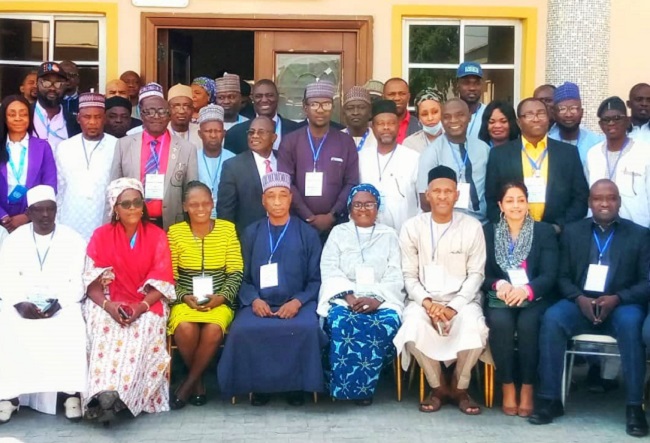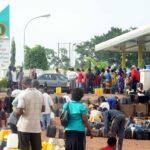The Nigerian government, in partnership with the World Health Organization (WHO), has begun the 12th health emergencies programmes in response to the protracted humanitarian crises in the Northeast with the view to strengthen the prompt response to outbreaks and other emergency issues in the region.
Speaking in Maiduguri on Monday, the World Health Organisation ( WHO), country representative Dr Walter Kazadi said the objective of the review is to improve access to quality health service delivery in the North-East that suffered many years of insurgency.
He noted that the core objective is to ensure effective local leadership, partner coordination and operations support.
According to him, WHO is trying to build the capacity of local communities so that they can take over different aspects of the World Health Organisation’s intervention.
“We are preparing the community to take over their activities while we are serving them with the G5 priorities which we called not the 5Ps.”
Also speaking, Minister of Health, Dr Osagie Ehanire said WHO has impacted positively in terms of emergency responses and humanitarian crises in the Northeast, particularly during the Boko Haram insurgency.
The minister who was represented by the director of health emergency and response, Mrs Adebite Olufunmilola stated that “we are looking at how far we have gone in the area of the humanitarian crisis that Borno state has faced a lot of displacement of persons and today we want to see how far we have achieved.
“WHO has gathered us together, so that we may able to review our progress and also identify the gaps and fill them and look for the transition from partners to the government to take ownership and take care of the crisis situation in North-East Nigeria.
“The Borno State is doing its best in support of the Federal Government, there is a lot of funding that is coming from the federal government to support response to the emergency outbreak in the state.”
Borno State Commissioner Of Health, Mohammed Arab said that “In essence, there is a positive impact from the WHO and other partners particularly in the area of emergency preparedness, WHO has led the other partners in the quest of emergency preparedness.
“What we are expecting is that for about past a decade we have been facing insecurity, we face all the negative aspects of that people have been displaced, people have been hopeless and health facilities have been destroyed, in that regard, all the programs of WHO and other partners are transiting.
“So, we have to sit down and articulate where we were and where we are and think of the future and take ownership of the responsibility, his Excellency has given us 100 per cent support and we need to take full control of responsibility in the health sector” he added.
READ ALSO FROM NIGERIAN TRIBUNE





